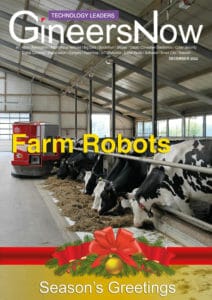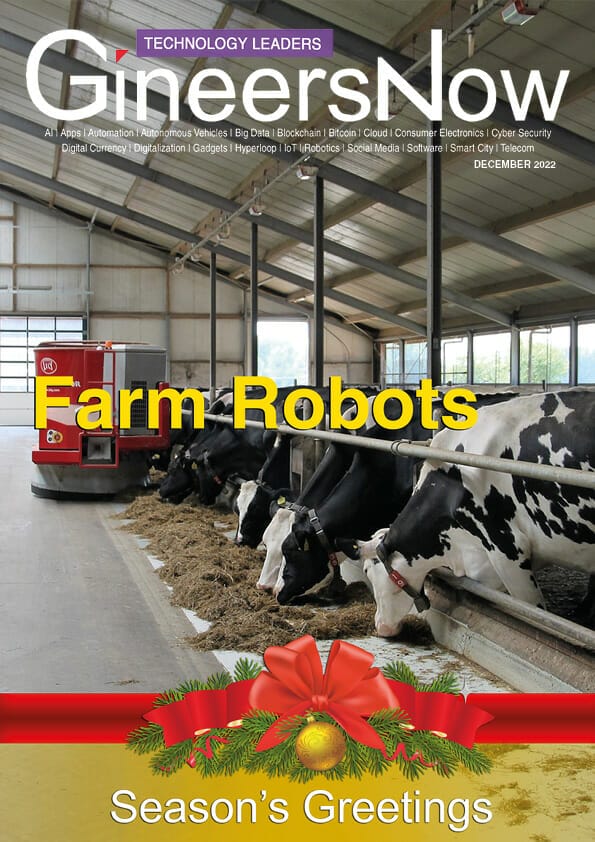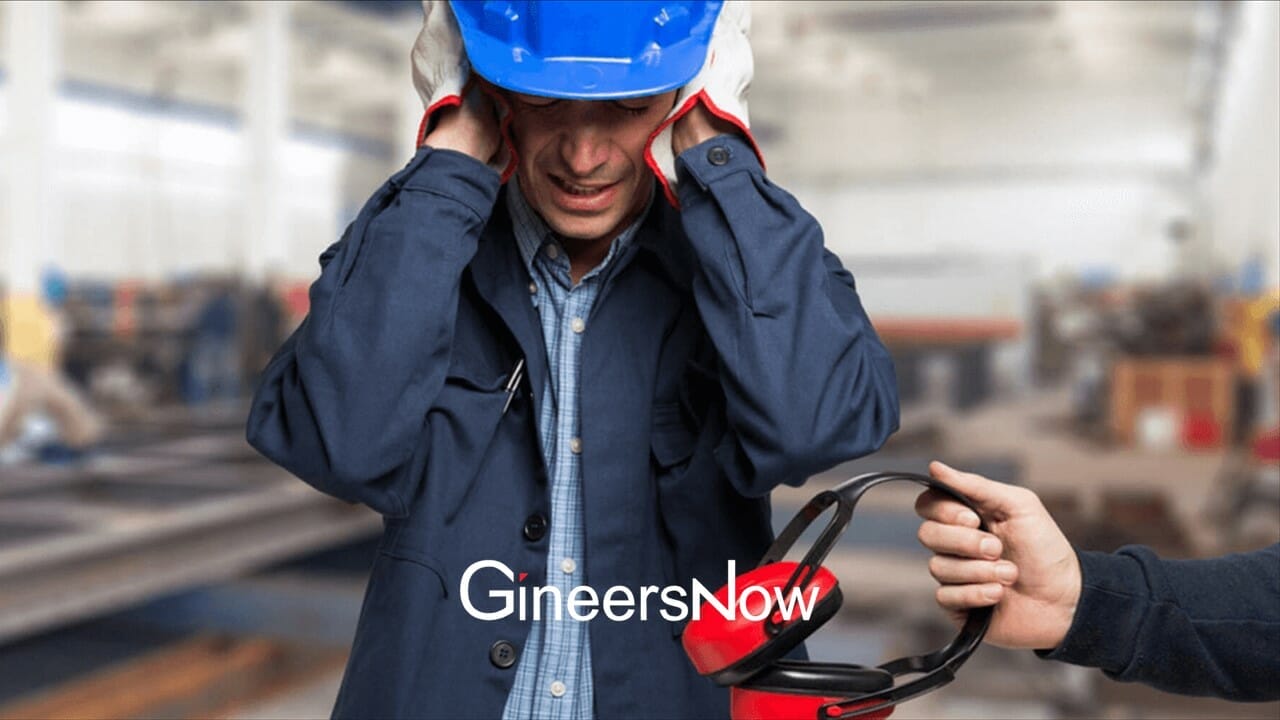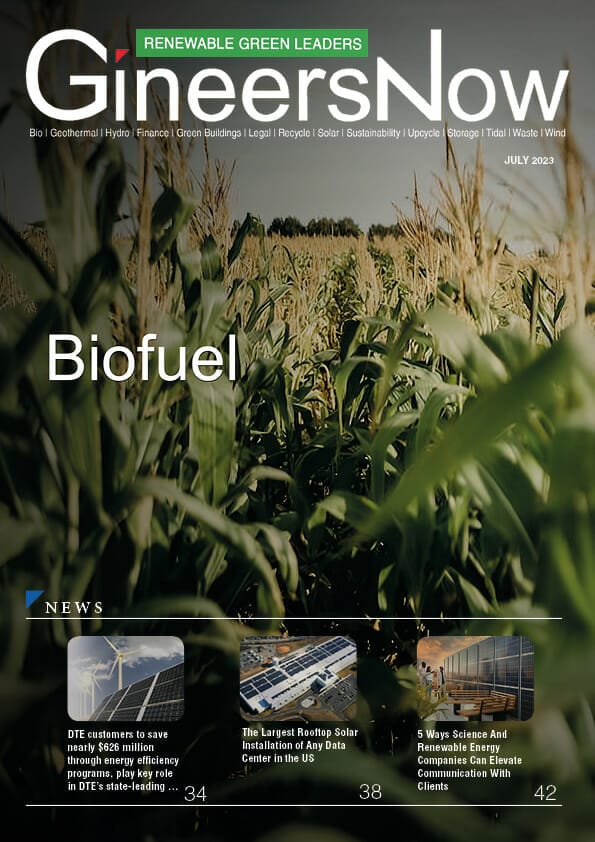In a world where technology is constantly evolving, it’s no surprise that even the agricultural industry is starting to use robots. Farm robots are becoming increasingly popular as they can help with tasks such as picking fruit and vegetables, herding livestock, and even mowing the lawn. While there are some concerns about the cost of these robots and whether or not they will eventually put farm workers out of jobs, there’s no denying that farm robots are the future of agriculture.
Farmers are using robots to help with a variety of tasks, including planting, harvesting, and even delivering milk. Some believe that robots will eventually replace human workers on farms altogether. Others believe that they will simply supplement human workers and make farming more efficient.
The agricultural industry is one of the oldest and most important industries in the world. It is responsible for providing food and other essential products for human beings. In recent years, however, the agricultural industry has been under pressure due to various factors such as climate change, dwindling resources, and increasing labor costs. In order to meet these challenges, many experts believe that agricultural robots may be the answer.
What are farm robots, and why could they be the future of agriculture?
Farm robots are set to revolutionize the agriculture industry. They can autonomously perform tasks such as planting, watering, and even harvesting crops. This could potentially free up farmers to do other tasks, such as caring for livestock or performing maintenance on equipment.
Robots for agriculture could also help to increase crop yields by working longer hours and in more difficult conditions than human workers. In addition, they are less likely to make mistakes that could damage crops.
Robots for agriculture: How do they work?
Farm robots are becoming increasingly popular as farmers look for ways to cut costs and improve efficiency. But how do these robots work?
Farm robots are typically designed to perform one or more specific tasks on the farm. For example, some robots may be used to harvest crops, while others may be used to milk cows or feed chickens.
Most farm robots are controlled by a computer system that is programmed to perform the desired task. The robot is then able to carry out the task autonomously without the need for human intervention.
Farm robots can provide a number of advantages for farmers. For instance, they can help to reduce labor costs, as well as increase crop yields, and reduce crop losses. In addition, farm robots can help to improve the quality of life for farmers by freeing up their time so that they can pursue other activities.
The need for farm robots
Farm robots are an essential tool in the agricultural industry. They help farmers with a variety of tasks, including planting, watering, and harvesting crops. Farm robots can also identify and track weeds, pests, and diseases. This helps farmers to better manage their crops and ensure a high yield.
While farm robots have many benefits, they are also expensive. The average cost of a farm robot is $20,000. This price tag can be a barrier for many small farmers. Additionally, farm robots require regular maintenance and repairs, which can add to the overall cost.
Despite the high cost, farm robots are becoming increasingly popular among farmers. In 2018, there were over 2,000 farm robots in use worldwide. This number is expected to grow in the coming years as more farmers adopt this technology.
Types of agricultural robots
Farmers are always looking for ways to improve their products while reducing their workload. Agricultural robots are one way they are able to do this. There are many different types of agricultural robots available, each with its own unique purpose.
One type of agricultural robot is the crop scout. Crop scouts are used to monitoring crops for pests and diseases. They can also provide information about soil conditions and water needs. This information can help farmers make decisions about when to apply pesticides or irrigation.
Another type of agricultural robot is the harvest bot. Harvest bots are used to automate the process of harvesting fruits and vegetables. This can help reduce labor costs and improve efficiency. Harvest bots can also be equipped with sensors that help them avoid damaging delicate crops.
Finally, there are dairy robots. Dairy robots are used to milk cows automatically.
How agricultural robots are changing farming
In a rapidly developing world, farmers are looking for ways to increase efficiency and yield. Agricultural robots are one way they are doing this. These machines can do tasks such as planting, weeding, and harvesting. They can work long hours and in difficult conditions. This is changing the way farmers operate and giving them new opportunities.
In recent years, technological advances have led to the development of agricultural robots. These machines are changing the way farmers operate and increasing efficiency on the farm.
One type of agricultural robot is the milking machine. This machine attaches to a cow’s udder and milks the cow without the farmer having to be present. The machine is equipped with sensors that clean the udder and teats before milking and provide information about the cow’s health.
Another type of agricultural robot is a crop scanner. This machine drives through fields and uses sensors to collect data about the crops. The data is then analyzed by software that provides information about the health of the crops and where they need more water or fertilizer.
Crop scanners and milking machines are just two examples of how agricultural robots are changing farming.
The operational cost efficiencies of farm robots
As the cost of labor continues to rise, many farmers are turning to robots to help with tasks on their farms. Robots can do many of the same tasks as human workers, but they often do so more efficiently and at a lower cost.
One of the biggest advantages of using robots is that they can work 24 hours a day, 7 days a week. This means that farmers can get more work done in a shorter amount of time. Robots also don’t need breaks and can work in all weather conditions.
Another benefit of using robots is that they can be programmed to do specific tasks. This allows farmers to customize the robot’s actions to fit their needs. For example, a farmer may program a robot to only pick ripe fruits or vegetables. This ensures that crops are harvested at the optimal time and reduces waste.
The pros and cons of farm robots
Farm robots are becoming increasingly popular as technology improves and the cost of robots decreases. There are many advantages to using robots on farms, including increased efficiency and productivity, but there are also some disadvantages to consider. In the section below, we will explore the pros and cons of farm robots in order to help farmers make an informed decision about whether or not to use them on their farms.
The advantages of farm robots
Robots are increasingly becoming a common sight on farms across the globe as farmers look to mechanize their operations and take advantage of the many benefits that these machines have to offer.
Farm robots can work 24 hours a day, 7 days a week, without getting tired or needing a break, meaning they can greatly increase the productivity of a farm. They are also much more precise than human workers when it comes to tasks such as planting and spraying, which can lead to increased yields.
In addition, farm robots can help to reduce the amount of labor required on a farm, freeing up workers for other tasks. They can also operate in hazardous environments that would be too dangerous for humans, such as working with pesticides.
Overall, there are many advantages that farm robots offer, and they are likely to play an even bigger role in agriculture in the years to come.
The disadvantages of farm robots
Farm robots are increasingly becoming a staple on many farms across the globe. While they have many advantages, there are also some disadvantages to using farm robots.
One of the biggest disadvantages of farm robots is their cost. They can be quite expensive to purchase and maintain, which can be a deterrent for many farmers. Additionally, they require a significant amount of training and programming in order to operate correctly, which can also be costly.
Another downside to farm robots is that they can cause disruptions in the natural ecosystem. For example, if robot malfunctions and starts spraying pesticides indiscriminately, it could do serious damage to the surrounding environment.
Additionally, if robots become too efficient at farming, it could lead to job losses for farmers and other agricultural workers.
The challenges of implementing farm robots in the agriculture industry
The agricultural industry is under pressure to mechanize in order to meet the world’s ever-growing demand for food. However, the implementation of farm robots presents a number of challenges.
One of the biggest challenges is the cost of these machines. Farm robots are still a relatively new technology and are, therefore, very expensive. For many farmers, it is simply not economically viable to invest in these machines.
Another challenge is that farm robots need to be able to operate in all weather conditions and terrain. This means that they need to be tough and robust, which further adds to their cost.
Finally, there is the challenge of public perception. There are many people who are opposed to the use of robots in agriculture, believing that it will lead to job losses. Farmers need to work hard to convince the public that farm robots can help create a more sustainable and efficient agricultural industry.
The future of agriculture: will farm robots take over?
The future of agriculture may lie in the hands of robots. Large-scale farms are already using robots to plant and harvest crops, and the technology is only getting more sophisticated. Some experts believe that eventually, robots will be able to do everything that farmers currently do, from tilling the soil to caring for livestock.
While some see this as a positive development that could lead to more efficient and sustainable agriculture, others worry about the impact it would have on jobs and rural communities. There is no question that farm robots are becoming increasingly common, but it remains to be seen whether they will ultimately take over from human farmers altogether.
Final thoughts: Farm Robots and the Future of Agriculture
Farm robots have the potential to greatly improve the efficiency of agriculture. They can work longer hours than human farmers, and they are not limited by weather conditions. Additionally, farm robots can be equipped with sensors that allow them to detect crop problems early, which can save farmers time and money. While there are some challenges that need to be addressed, such as high initial costs and the potential for job loss, farm robots hold great promise for the future of agriculture.
Read GineersNow Technology Magazine for FREE
Editors Note
What are farm robots?
The agricultural industry is constantly looking for ways to reduce costs and increase efficiency. Farm robots are one way that farmers are trying to achieve these goals. Farm robots are machines that can perform various tasks on a farm, such as planting, watering, and harvesting crops. Some farm robots are even equipped with sensors that allow them to avoid obstacles and detect crop pests. While farm robots offer many potential benefits, they also come with some risks.
The impact of farm robots on job employment
Farm robots are becoming increasingly popular as the price of the technology decreases and the demand for perfect produce increases. While there are many benefits to using robots on farms, one of the concerns is that they will lead to job loss in the agricultural industry.
There is no denying that farm robots can do the job better than humans in many cases. They can work longer hours without getting tired, they don’t need breaks, and they can be programmed to do very specific tasks. This means that farmers can get more work done with fewer employees.
However, there are also some disadvantages to using farm robots. For one, they are expensive and so not all farmers can afford to buy them. Secondly, they require a lot of maintenance, and if something goes wrong with them, it can be difficult to fix.
Can robots for agriculture kill?
In recent years, there has been a growing trend of using robots in agriculture. While these machines have proved to be efficient and cost-effective in many ways, some experts are now warning that they could also pose a serious threat to human safety.
One of the biggest concerns is that robots for agriculture could accidentally kill or injure people if they’re not properly programmed and monitored. For example, if a robot mistakes a person for a piece of equipment, it could potentially crush them. There have already been several reported incidents of this happening.
Another worry is that hackers could gain control of farm robots and use them to cause harm. If someone was able to hack into a robotic tractor, they could potentially drive it into a crowd of people. While this may sound like something out of a sci-fi movie, it’s actually not that far-fetched.
Click below to read the magazine

Click here to download the magazine
Click here to read on Yumpu























